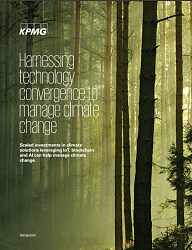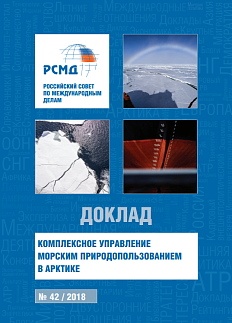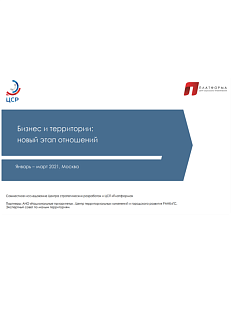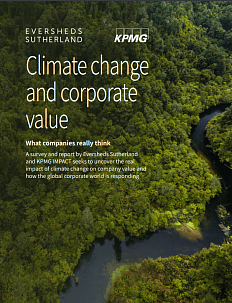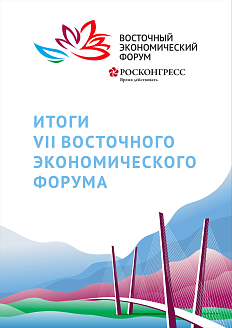A research by consulting firm KPMG examines how companies can use technological innovations to reduce their carbon footprint and improve competitiveness.
The Roscongress Foundation presents the salient points of the publication accompanied by fragments of broadcasts of relevant panel discussions from the business programme of international events held by the Roscongress Foundation.
Climate change and measures to combat it have become an integral part of the lives of people and companies alike, who are forced to broadly implement the decarbonization agenda and consider ESG factors in their business strategies.
Environmental, Social, and Corporate Governance (ESG) initiatives are becoming increasingly important to companies. When making investment decisions, companies now have to take into account not only the benefits, but also the impact that the decisions will have on society and the environment. ESG factors are growing in importance as public demand for responsible behavior increases and as regulatory changes occur.
ESG factors are becoming part of compliance procedures, are included in the valuation of companies, and are taken into account in non-financial risk factors. As a consequence, investment funds that invest responsibly and with consideration of ethical and environmental standards perform better than the market average.
Introducing ESG factors into firms’ business strategies is now a compelling need. Moreover, the integration of these factors, as well as the companies’ ethical and environmental guidelines, is already part of the companies’ distinctive DNA. And those who implemented it earlier than others now have a competitive advantage as a result of this area’s regulation development.
The use of technology and its convergence to build trustworthy information and reporting systems is of particular importance to companies.
The implementation of ESG factors leads to the creation of open and verifiable systems of control over the actions of companies in this area. Thus, many companies have already made commitments to achieve carbon neutrality (among them, for example, Microsoft). The way to achieve the objectives is to use technology.
Some companies, such as cloud storage providers, are switching to renewable energy. In this regard, Internet of things technology which is important for industrial systems linking different devices and their data together can play an important role. However, the greatest effect can be achieved through the convergence of different technologies and placing them at the service of the company’s climate goals.
The introduction of blockchain technology is important to control the fidelity of data and protect it from distortion, allowing companies to track changes in data and allowing regulatory authorities, including auditors, to have an objective tool for assessing performance. In addition, ensuring the verifiability of data is important for management and the board of directors of companies in the decision-making process, internal and external assessment and comparison of firm performance.
For more information, see the special sections of the Roscongress Foundation Information and Analytical System: Sustainable Development, Environment, Venture capital devoted to the development of the environmental protection and decarbonization agenda and the adaptation of companies to it by investing in «green» projects.


